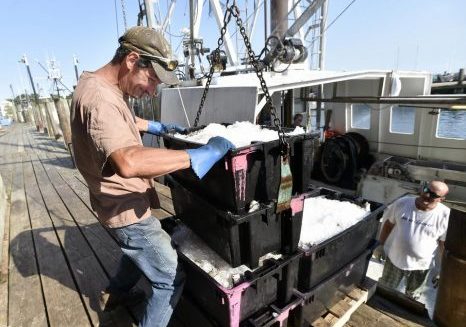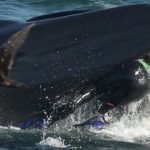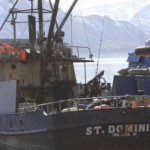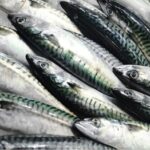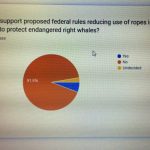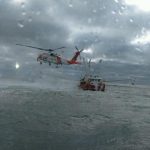Tag Archives: Mid-Atlantic Fishery Management Council
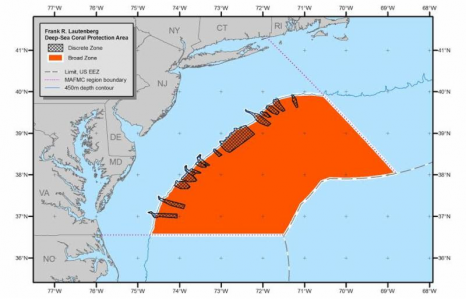
NMFS Final Rule on Mid-Atlantic Council’s Frank R. Lautenberg Deep Sea Coral Protection Area
The Council approved the Deep Sea Corals Amendment to the Mackerel, Squid, Butterfish Fishery Management Plan in 2015 in order to protect deep sea corals from the impacts of bottom-tending fishing gear. Within the protected area, commercial fishermen are prohibited from using most types of bottom-tending fishing gear such as trawls, dredges, bottom longlines, and traps. The rule does not apply to recreational fishing, commercial gear types that do not contact the sea floor, or the American lobster trap fishery. An exemption is provided for the deep sea red crab commercial trap fishery. Vessels may transit through the area if fishing gear is stowed and not available for immediate use. Development of the deep sea coral protection area was informed by several recent scientific research efforts undertaken by the National Oceanic and Atmospheric Administration and the Bureau of Ocean Energy Management, including several deep sea surveys and the development of a predictive deep sea coral habitat suitability model. Using this information, the landward boundaries for the protected area were developed cooperatively by members of the Council’s advisory panels, deep sea coral experts, fishing industry members, and other stakeholders. Read the rest here with links to Fed Register 11:35
Mid-Atlantic Fishery Management Council meeting in Baltimore, Maryland: December 12-15, 2016
 The public is invited to attend the Mid-Atlantic Fishery Management Council’s December 2016 meeting to be held December 12-15, 2016 in Baltimore, Maryland. The meeting will be held at the Royal Sonesta Harbor Court, 550 Light St., Baltimore, MD 21202, Telephone 410-234-0550. Webinar: For online access to the meeting, enter as a guest click here . Meeting Materials: Briefing documents click here as they become available. Agenda click here 13:04
The public is invited to attend the Mid-Atlantic Fishery Management Council’s December 2016 meeting to be held December 12-15, 2016 in Baltimore, Maryland. The meeting will be held at the Royal Sonesta Harbor Court, 550 Light St., Baltimore, MD 21202, Telephone 410-234-0550. Webinar: For online access to the meeting, enter as a guest click here . Meeting Materials: Briefing documents click here as they become available. Agenda click here 13:04
Effort to protect deep-sea coral has lobster industry on alert
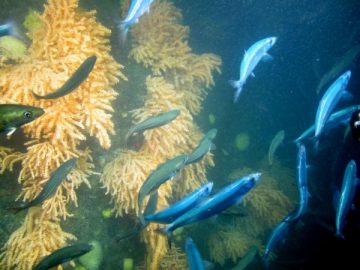 Over 400 Maine lobstermen could lose their traditional fishing territory under a proposal to protect deep-sea corals in the Gulf of Maine. The New England Fishery Management Council is considering a plan that would ban fishing in four designated coral zones spanning about 161 miles of federal waters in the Gulf of Maine – Mount Desert Rock, Outer Schoodic Ridge, Jordan Basin and Lindenkohl Knoll. Here, often on steep rock walls deep under water where sunlight cannot penetrate, scientists have found dense, delicate and slow-growing coral gardens of sea whips, fans and pens. During the cold-weather months, when 52-year-old Jim Dow usually fishes for hard-shell lobsters in deep federal waters, his buoys will encircle Mount Desert Rock, where the lobster is so plentiful that boats will sail for hours to drop traps there. As a result, fishermen call it the Meeting Grounds. He said word is just starting to spread about the coral protection plan, but he said the fishermen he has talked with say they didn’t even know there was coral in the deep canyons below. Read the rest here 10:16
Over 400 Maine lobstermen could lose their traditional fishing territory under a proposal to protect deep-sea corals in the Gulf of Maine. The New England Fishery Management Council is considering a plan that would ban fishing in four designated coral zones spanning about 161 miles of federal waters in the Gulf of Maine – Mount Desert Rock, Outer Schoodic Ridge, Jordan Basin and Lindenkohl Knoll. Here, often on steep rock walls deep under water where sunlight cannot penetrate, scientists have found dense, delicate and slow-growing coral gardens of sea whips, fans and pens. During the cold-weather months, when 52-year-old Jim Dow usually fishes for hard-shell lobsters in deep federal waters, his buoys will encircle Mount Desert Rock, where the lobster is so plentiful that boats will sail for hours to drop traps there. As a result, fishermen call it the Meeting Grounds. He said word is just starting to spread about the coral protection plan, but he said the fishermen he has talked with say they didn’t even know there was coral in the deep canyons below. Read the rest here 10:16
Mid-Atlantic Fishery Management Council meeting in Galloway, NJ, Oct 4-6, 2016 – Listen Live!
 The public is invited to attend the Mid-Atlantic Fishery Management Council’s October meeting to be held at the Stockton Seaview Hotel, 401 South New York Road, Galloway, NJ. Read the Council Meeting Agenda, For online access to the meeting, enter as a guest Click here 17:20
The public is invited to attend the Mid-Atlantic Fishery Management Council’s October meeting to be held at the Stockton Seaview Hotel, 401 South New York Road, Galloway, NJ. Read the Council Meeting Agenda, For online access to the meeting, enter as a guest Click here 17:20
Search for a Scapegoat: Offshore Trawler Bycatch Suspected in Disappearance of Shad
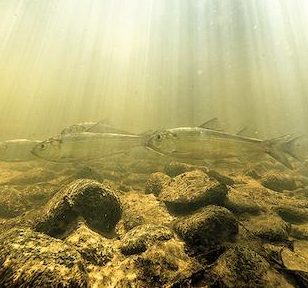 Mid-Atlantic fisheries regulators are weighing whether to take additional steps to protect American shad and river herring as they migrate along the East Coast, as some new research suggests significant numbers of herring may be accidentally netted by offshore trawlers. The Mid-Atlantic Fishery Management Council is scheduled to receive a staff-written white paper this month reviewing whether to move toward imposing tighter limits on the amount of shad and river herring that could be caught by offshore fleets pursuing another species, Atlantic mackerel. The council, which regulates commercial fishing within federal waters from New York to North Carolina, plans to make a decision at its October meeting. “We’ve got industrial-scale fishing vessels targeting mackerel and Atlantic herring in the southern New England area, and we barely have any observer coverage on those vessels,” complains Roger Fleming, a lawyer with Earthjustice. “Some of those vessels can hold up to 1 million pounds of fish. . . . They can virtually wipe out a river herring stock in one tow [of the net].” Read the story here 12:20
Mid-Atlantic fisheries regulators are weighing whether to take additional steps to protect American shad and river herring as they migrate along the East Coast, as some new research suggests significant numbers of herring may be accidentally netted by offshore trawlers. The Mid-Atlantic Fishery Management Council is scheduled to receive a staff-written white paper this month reviewing whether to move toward imposing tighter limits on the amount of shad and river herring that could be caught by offshore fleets pursuing another species, Atlantic mackerel. The council, which regulates commercial fishing within federal waters from New York to North Carolina, plans to make a decision at its October meeting. “We’ve got industrial-scale fishing vessels targeting mackerel and Atlantic herring in the southern New England area, and we barely have any observer coverage on those vessels,” complains Roger Fleming, a lawyer with Earthjustice. “Some of those vessels can hold up to 1 million pounds of fish. . . . They can virtually wipe out a river herring stock in one tow [of the net].” Read the story here 12:20
MAFMC and ASMFC Actions on Black Sea Bass, Bluefish, Scup and Summer Flounder
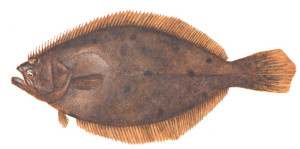 Last week the Mid-Atlantic Fishery Management Council (Council) and the Atlantic States Marine Fisheries Commission (Commission) reviewed previously implemented specifications for scup, black sea bass and bluefish fisheries and modified specifications for summer flounder. The Commission’s actions are final and apply to state waters. The Council will forward its federal waters recommendations regarding summer flounder specifications to NOAA Fisheries Greater Atlantic Regional Fisheries Administrator for final approval. For summer flounder, both groups approved a commercial quota of 5.66 million pounds and a recreational harvest limit of 3.77 million pounds for 2017, an approximate 30% decrease from 2016. This decrease in catch and landings limits responds to the findings of the 2016 stock assessment update, which indicates summer flounder has been experiencing overfishing since 2008. Read the rest here 12:06
Last week the Mid-Atlantic Fishery Management Council (Council) and the Atlantic States Marine Fisheries Commission (Commission) reviewed previously implemented specifications for scup, black sea bass and bluefish fisheries and modified specifications for summer flounder. The Commission’s actions are final and apply to state waters. The Council will forward its federal waters recommendations regarding summer flounder specifications to NOAA Fisheries Greater Atlantic Regional Fisheries Administrator for final approval. For summer flounder, both groups approved a commercial quota of 5.66 million pounds and a recreational harvest limit of 3.77 million pounds for 2017, an approximate 30% decrease from 2016. This decrease in catch and landings limits responds to the findings of the 2016 stock assessment update, which indicates summer flounder has been experiencing overfishing since 2008. Read the rest here 12:06
Mid-Atlantic Fishery Management Council meeting in Virginia Beach, VA August 8 – 11, 2016
 The public is invited to attend the Mid-Atlantic Fishery Management Council’s April meeting to be held at the Hilton Virginia Beach Oceanfront, 3001 Atlantic Avenue, Virginia Beach, VA 23451, Telephone 757-213-3000. Council Meeting Agenda, For online access to the meeting, enter as a guest Click here 07:12
The public is invited to attend the Mid-Atlantic Fishery Management Council’s April meeting to be held at the Hilton Virginia Beach Oceanfront, 3001 Atlantic Avenue, Virginia Beach, VA 23451, Telephone 757-213-3000. Council Meeting Agenda, For online access to the meeting, enter as a guest Click here 07:12
Connecticut lawmakers call on inspector general to investigate fishing regulations
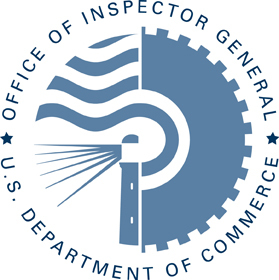 U.S. Sens. Richard Blumenthal and Chris Murphy, both D-Conn., along with U.S. Rep. Joe Courtney, D-Second District, on Tuesday called on the inspector general of the Department of Commerce to investigate what they call an inequity in regulations that puts New England fishermen at a disadvantage. “We write to raise a growing concern of our constituents in the fishing industry who are facing extreme economic hardship related to the structure of fisheries management across the Northeast and mid-Atlantic,” wrote Blumenthal, Murphy and Courtney. “On several occasions during town halls and meetings in Connecticut with many of the fishermen who operate in the state, we have repeatedly heard concerns that black sea bass, summer flounder, and scup have migrated northward, but the state-by-state allocations for these species still reflect historical numbers when they were in greater abundance in the mid-Atlantic,” the lawmakers wrote. Read the rest here 18:53
U.S. Sens. Richard Blumenthal and Chris Murphy, both D-Conn., along with U.S. Rep. Joe Courtney, D-Second District, on Tuesday called on the inspector general of the Department of Commerce to investigate what they call an inequity in regulations that puts New England fishermen at a disadvantage. “We write to raise a growing concern of our constituents in the fishing industry who are facing extreme economic hardship related to the structure of fisheries management across the Northeast and mid-Atlantic,” wrote Blumenthal, Murphy and Courtney. “On several occasions during town halls and meetings in Connecticut with many of the fishermen who operate in the state, we have repeatedly heard concerns that black sea bass, summer flounder, and scup have migrated northward, but the state-by-state allocations for these species still reflect historical numbers when they were in greater abundance in the mid-Atlantic,” the lawmakers wrote. Read the rest here 18:53
The Mid-Atlantic Fishery Management Council is in session in Newark, DE Jun 13-16 2016
 The public is invited to attend the Mid-Atlantic Fishery Management Council’s April meeting to be held at the Courtyard Marriott Newark Montauk Yacht Club, Council Meeting Agenda, For online access to the meeting, enter as a guest Click here 13:40
The public is invited to attend the Mid-Atlantic Fishery Management Council’s April meeting to be held at the Courtyard Marriott Newark Montauk Yacht Club, Council Meeting Agenda, For online access to the meeting, enter as a guest Click here 13:40
‘Fraught With Defects’, Connecticut Lawmakers Urge Reforms To Fishing Regulations
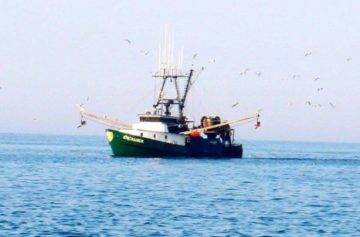 Connecticut’s congressional delegation is leading a renewed push for reform of federal commercial fishing quotas critics say are out of date, wasteful, fail to respond to climate change and unfair to New England fishermen. Warming ocean temperatures are pushing vast numbers of fish like black bass, summer flounder and scup farther north into New England waters, according to the delegation’s letter to federal officials, but old fishing quotas severely restrict how many of those fish commercial boats from this region are allowed to keep. The out-of-date quota system means that fishermen from North Carolina, Virginia and Maryland are allowed to take much larger numbers of those types of fish, even when they come to New England’s offshore waters to net them, according to a joint letter by Connecticut and Massachusetts members of Congress. Read the rest here 20:15
Connecticut’s congressional delegation is leading a renewed push for reform of federal commercial fishing quotas critics say are out of date, wasteful, fail to respond to climate change and unfair to New England fishermen. Warming ocean temperatures are pushing vast numbers of fish like black bass, summer flounder and scup farther north into New England waters, according to the delegation’s letter to federal officials, but old fishing quotas severely restrict how many of those fish commercial boats from this region are allowed to keep. The out-of-date quota system means that fishermen from North Carolina, Virginia and Maryland are allowed to take much larger numbers of those types of fish, even when they come to New England’s offshore waters to net them, according to a joint letter by Connecticut and Massachusetts members of Congress. Read the rest here 20:15
Changing Migration Patterns Upend East Coast Fishing Industry
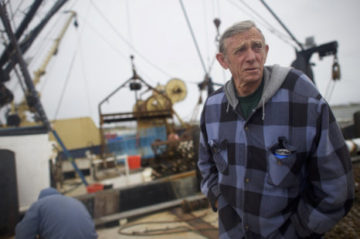 Summer flounder that once amassed in North Carolina have gradually shifted about 140 miles to New Jersey—one facet of the northward migration of fish species that is upending traditional fishing patterns. The move north has sparked debate among regulators over how to respond to changing natural resources that could affect commercial fisheries across the eastern seaboard. For the first time, a group of researchers backed by the federal government is trying to ascertain what the northward movement means for fishermen’s income and way of life. “Some fisherman will end up losing out and some will win big,” Read the rest here 13:04
Summer flounder that once amassed in North Carolina have gradually shifted about 140 miles to New Jersey—one facet of the northward migration of fish species that is upending traditional fishing patterns. The move north has sparked debate among regulators over how to respond to changing natural resources that could affect commercial fisheries across the eastern seaboard. For the first time, a group of researchers backed by the federal government is trying to ascertain what the northward movement means for fishermen’s income and way of life. “Some fisherman will end up losing out and some will win big,” Read the rest here 13:04
Mid Atlantic Council Approves Changes to Scup Gear-Restricted Areas
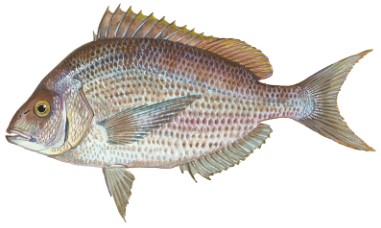 During a meeting in Montauk, New York the Mid-Atlantic Fishery Management Council approved a framework action to modify the boundary of one of the region’s two Scup Gear Restricted Areas (GRAs). The proposed change to the Southern Scup GRA boundary is expected to increase the availability of longfin squid to small-mesh fisheries. The GRAs were implemented in 2000 and are intended to reduce discard mortality of juvenile scup. The current GRA regulations include a Northern GRA, which is effective from November 1 through December 31, and a Southern GRA, which is effective from January 1 through March 15. Trawl vessels which fish for or possess longfin squid, black sea bass, or silver hake (also known as whiting) are required to use mesh 5 inches or larger in the GRAs during those times of the year. Read the rest here 07:40
During a meeting in Montauk, New York the Mid-Atlantic Fishery Management Council approved a framework action to modify the boundary of one of the region’s two Scup Gear Restricted Areas (GRAs). The proposed change to the Southern Scup GRA boundary is expected to increase the availability of longfin squid to small-mesh fisheries. The GRAs were implemented in 2000 and are intended to reduce discard mortality of juvenile scup. The current GRA regulations include a Northern GRA, which is effective from November 1 through December 31, and a Southern GRA, which is effective from January 1 through March 15. Trawl vessels which fish for or possess longfin squid, black sea bass, or silver hake (also known as whiting) are required to use mesh 5 inches or larger in the GRAs during those times of the year. Read the rest here 07:40
Mid-Atlantic Fishery Management Council meeting in Montauk April 11- April 14, 2016
 The public is invited to attend the Mid-Atlantic Fishery Management Council’s April meeting to be held at the Montauk Yacht Club, 21 Star Island Road, Montauk NY . Council Meeting Agenda, For online access to the meeting, enter as a guest Click here 16:36
The public is invited to attend the Mid-Atlantic Fishery Management Council’s April meeting to be held at the Montauk Yacht Club, 21 Star Island Road, Montauk NY . Council Meeting Agenda, For online access to the meeting, enter as a guest Click here 16:36
Mid-Atlantic Fishery Management Council Announces Funded Collaborative Research Projects
 The Mid-Atlantic Fishery Management Council announces that four research projects have been selected to receive a total of approximately $610,000 in funding as part of the Council’s 2016-2017 Collaborative Fisheries Research Program. The four projects each address research priorities identified by the Mid-Atlantic Council in a Request for Proposals distributed in December 2015. “Accurate information is the foundation of effective fisheries management,” said Council Chairman Rick Robins. “These research projects will help fill critical gaps in our understanding of Mid-Atlantic fisheries and ensure their continued sustainability.” Details on the selected projects are provided below. Click here for the details 18:36
The Mid-Atlantic Fishery Management Council announces that four research projects have been selected to receive a total of approximately $610,000 in funding as part of the Council’s 2016-2017 Collaborative Fisheries Research Program. The four projects each address research priorities identified by the Mid-Atlantic Council in a Request for Proposals distributed in December 2015. “Accurate information is the foundation of effective fisheries management,” said Council Chairman Rick Robins. “These research projects will help fill critical gaps in our understanding of Mid-Atlantic fisheries and ensure their continued sustainability.” Details on the selected projects are provided below. Click here for the details 18:36
Mid Atlantic Fishery Management Council Meeting in New Bern, NC February 9 – 11, 2016
![]() The public is invited to attend the Mid-Atlantic Fishery Management Council’s February, 2016 meeting on Tuesday, in New Bern, NC . Briefing Materials & Agenda Overview Agenda click here Attend Meeting with Adobe Connect Click here Listen Live! 12:15
The public is invited to attend the Mid-Atlantic Fishery Management Council’s February, 2016 meeting on Tuesday, in New Bern, NC . Briefing Materials & Agenda Overview Agenda click here Attend Meeting with Adobe Connect Click here Listen Live! 12:15
NMFS Announces 2016-2018 Regs for Summer Flounder, Scup and Black Sea Bass

Mid-Atlantic Council Votes to Reduce Spiny Dogfish Quota for 2016
 At last week’s meeting in Philadelphia, the Mid-Atlantic Fishery Management Council recommended a substantial cut in the spiny dogfish commercial quota for next year. Following a review of the most recent scientific information, public comments, and advice from the Scientific and Statistical Committee (SSC) and Spiny Dogfish Advisory Panel, the Council voted to set the 2016 commercial quota at 25.3 million pounds, a 50% reduction from the 2015 quota of 50.6 million pounds. If approved by the National Marine Fisheries Service, the new measure will,,, Read the rest here 17:20
At last week’s meeting in Philadelphia, the Mid-Atlantic Fishery Management Council recommended a substantial cut in the spiny dogfish commercial quota for next year. Following a review of the most recent scientific information, public comments, and advice from the Scientific and Statistical Committee (SSC) and Spiny Dogfish Advisory Panel, the Council voted to set the 2016 commercial quota at 25.3 million pounds, a 50% reduction from the 2015 quota of 50.6 million pounds. If approved by the National Marine Fisheries Service, the new measure will,,, Read the rest here 17:20
UPDATED: Mid Atlantic Fishery Management Council Meeting in Philadelphia, Oct 6,- 8, 2015
 Briefing Materials & Agenda Overview Agenda, click here Complete Briefing Book, click here Attend Meeting with Adobe Connect Click here Webpage, click here 20:29
Briefing Materials & Agenda Overview Agenda, click here Complete Briefing Book, click here Attend Meeting with Adobe Connect Click here Webpage, click here 20:29
The Mid-Atlantic Fishery Management Council – Scoping Hearings for Action on Unmanaged Forage Species
 The Mid-Atlantic Fishery Management Council has scheduled a series of scoping hearings to gather public input for a proposed action to protect unmanaged forage species. The proposed action would consider a prohibition on the development of new, or expansion of existing, directed fisheries on unmanaged forage species in the Mid-Atlantic until adequate scientific information is available to promote ecosystem sustainability. Eight hearings will be held between September 15, 2015 and October 1, 2015 in locations throughout the Mid-Atlantic region. Written comments may also be submitted through October 2, 2015. Dates and locations Read the rest here 16:16
The Mid-Atlantic Fishery Management Council has scheduled a series of scoping hearings to gather public input for a proposed action to protect unmanaged forage species. The proposed action would consider a prohibition on the development of new, or expansion of existing, directed fisheries on unmanaged forage species in the Mid-Atlantic until adequate scientific information is available to promote ecosystem sustainability. Eight hearings will be held between September 15, 2015 and October 1, 2015 in locations throughout the Mid-Atlantic region. Written comments may also be submitted through October 2, 2015. Dates and locations Read the rest here 16:16
The Harvey Haddock Report – Fullabullard to Fishermen, DROP DEAD!
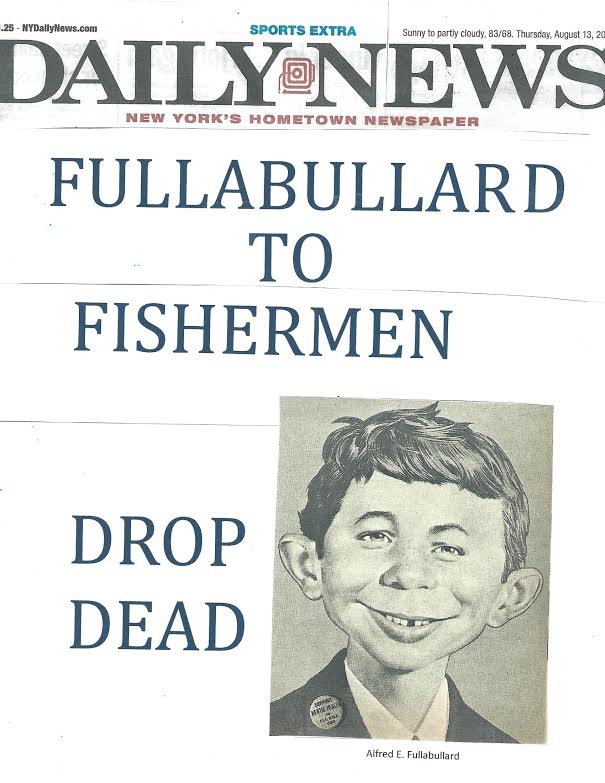 At a meeting here in NYC on august 12, 2015 the Mid Atlantic Fishery Management Council voted in favor of economically devastating quota cuts in the summer flounder fishery of 29% for each of the next three years. 70 commercial and recreational fishermen were at the meeting to plea for a delay so the North East Fishery Science center could review the stock assessment data using different data inputs. But the council cowardly co towed to Fullabullard’s bullying and rubber stamped the reductions. Read the rest here 18:28
At a meeting here in NYC on august 12, 2015 the Mid Atlantic Fishery Management Council voted in favor of economically devastating quota cuts in the summer flounder fishery of 29% for each of the next three years. 70 commercial and recreational fishermen were at the meeting to plea for a delay so the North East Fishery Science center could review the stock assessment data using different data inputs. But the council cowardly co towed to Fullabullard’s bullying and rubber stamped the reductions. Read the rest here 18:28
NESC AGAIN is Questioned, Criticized as Mid Atlantic Council Cuts Fluke by more than 26 percent
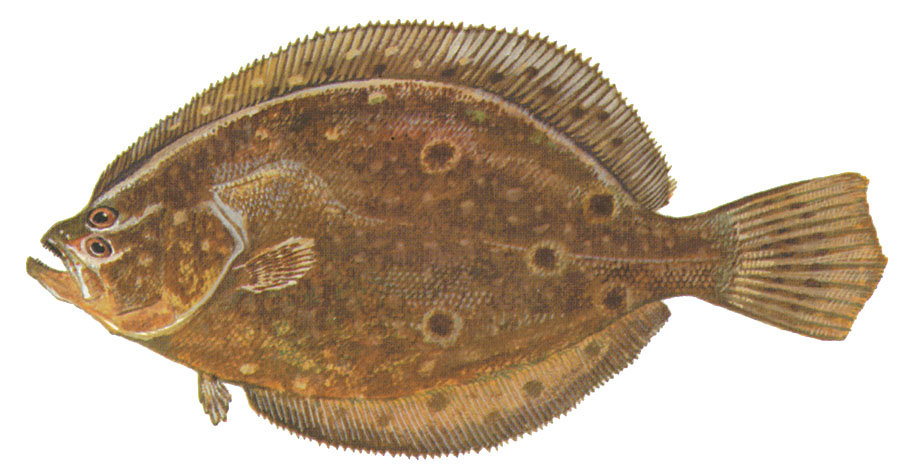 It could have been worse. The initial proposal announced in July called for a 43 percent reduction. A lot of theories were thrown around at the meeting, ranging from illegal harvests to dogfish shark predation.Some wanted the panels’ science and statistical committees to take another look, which was part of the motions by Fote and Kaelin. Greg DiDomenico, director of the Cape May-based Garden State Seafood Association, said more than one-third of the time, new stock assessments show the older ones were wrong. Read the rest here 19:42
It could have been worse. The initial proposal announced in July called for a 43 percent reduction. A lot of theories were thrown around at the meeting, ranging from illegal harvests to dogfish shark predation.Some wanted the panels’ science and statistical committees to take another look, which was part of the motions by Fote and Kaelin. Greg DiDomenico, director of the Cape May-based Garden State Seafood Association, said more than one-third of the time, new stock assessments show the older ones were wrong. Read the rest here 19:42
Next Year Will Be Awful Or Very Awful For Fluke Fisherman
Unless regulators provide a less abrupt alternative, the amount of fluke caught by  could be nearly cut in half by next year — a sudden drop that might seriously wound the charter fishing fleet in Sheepshead Bay. Captain Anthony DiLernia, one of New York’s representatives in the Mid-Atlantic Fishery Management Council, said lower-than-expected fluke stocks found during the fish population surveys will require slashing quotas by as much as 45 percent next season. However, DiLernia said the council is considering,,, Read the rest here 12:19
could be nearly cut in half by next year — a sudden drop that might seriously wound the charter fishing fleet in Sheepshead Bay. Captain Anthony DiLernia, one of New York’s representatives in the Mid-Atlantic Fishery Management Council, said lower-than-expected fluke stocks found during the fish population surveys will require slashing quotas by as much as 45 percent next season. However, DiLernia said the council is considering,,, Read the rest here 12:19
Assemblyman Fred Thiele Jr. bucks Mid Atlantic Council flounder reduction plan
 .“The implications and economic tragedies resulting from such a reduction will have resounding negative consequences on the entire East Coast,” Mr. Thiele said in a letter to the Mid-Atlantic Fishery Management Council. He’s asked Attorney General Eric Schneiderman to start legal proceedings against the Fishery Management Council and the National Marine Fisheries Service challenging application of the quota allocation to New York. The data supporting the cutback is “based on old, incomplete and faulty information,” justifying legal action, Mr. Thiele said. Read the rest here 18:21
.“The implications and economic tragedies resulting from such a reduction will have resounding negative consequences on the entire East Coast,” Mr. Thiele said in a letter to the Mid-Atlantic Fishery Management Council. He’s asked Attorney General Eric Schneiderman to start legal proceedings against the Fishery Management Council and the National Marine Fisheries Service challenging application of the quota allocation to New York. The data supporting the cutback is “based on old, incomplete and faulty information,” justifying legal action, Mr. Thiele said. Read the rest here 18:21
New Mid Atlantic Council recommendation revises fluke cuts
 A memo released by the Mid-Atlantic Fishery Management Council staff on Friday revised the earlier recommended fluke cuts downward from 43 percent to 25 percent for 2016. In making the revision, the Council staff recognized the substantial negative impact such a reduction would have on the recreational and commercial fisheries, the seafood industry and markets and fishing communities they support. Instead of the one-year plan called for in its initial memo, the Council staff is recommending a “phased in” approach,,, Read the rest here 11:57
A memo released by the Mid-Atlantic Fishery Management Council staff on Friday revised the earlier recommended fluke cuts downward from 43 percent to 25 percent for 2016. In making the revision, the Council staff recognized the substantial negative impact such a reduction would have on the recreational and commercial fisheries, the seafood industry and markets and fishing communities they support. Instead of the one-year plan called for in its initial memo, the Council staff is recommending a “phased in” approach,,, Read the rest here 11:57
Governor Cuomo Calls For Fair and Gradual Changes to Summer Flounder Fishery
 Governor Cuomo called on the Mid Atlantic Fishery Management Council to reevaluate a potential 43 percent fluke harvest reduction for New York in 2016. The potential reduction would negatively affect both commercial and recreational fisheries in New York State. The potential reductions are based on several consecutive years of lower than average reproductive success and not as a result of overharvest in New York or elsewhere on the coast. Read the rest here 10:09
Governor Cuomo called on the Mid Atlantic Fishery Management Council to reevaluate a potential 43 percent fluke harvest reduction for New York in 2016. The potential reduction would negatively affect both commercial and recreational fisheries in New York State. The potential reductions are based on several consecutive years of lower than average reproductive success and not as a result of overharvest in New York or elsewhere on the coast. Read the rest here 10:09
Mid-Atlantic Fishery Management Council Ready To SLASH Fluke Catch Quota
 A dramatic collapse in the reproduction of summer flounder off the East Coast may mean a sharp cut in the catch quota for both commercial and recreational fishermen next summer, according to a science committee on the Mid-Atlantic Fishery Management Council. But a 43-percent cut in the quota has been proposed for a late July meeting of the council, when a decision is expected at that time. That would reduce this year’s quota of roughly 22 million pounds to just 12 million pounds next year. Read the rest here 17:10
A dramatic collapse in the reproduction of summer flounder off the East Coast may mean a sharp cut in the catch quota for both commercial and recreational fishermen next summer, according to a science committee on the Mid-Atlantic Fishery Management Council. But a 43-percent cut in the quota has been proposed for a late July meeting of the council, when a decision is expected at that time. That would reduce this year’s quota of roughly 22 million pounds to just 12 million pounds next year. Read the rest here 17:10
Mid-Atlantic Fishery Management Council voted Wednesday to protect deep sea corals
 The squid industry, which initially objected to many of the restrictions, worked with scientists and conservationists to establish boundaries for 15 discrete deepwater canyons and other sites where bottom fishing would be prohibited. And in the end, said Gregory P. DiDomenico, the executive director of the Garden State Seafood Association, he supported the broader area that overlaps most of the canyons. He said, “If we stay in business and protect corals, we’ve done our job.” Read the rest here 08:23
The squid industry, which initially objected to many of the restrictions, worked with scientists and conservationists to establish boundaries for 15 discrete deepwater canyons and other sites where bottom fishing would be prohibited. And in the end, said Gregory P. DiDomenico, the executive director of the Garden State Seafood Association, he supported the broader area that overlaps most of the canyons. He said, “If we stay in business and protect corals, we’ve done our job.” Read the rest here 08:23
Mid-Atlantic Fishery Management Council meeting in Virginia Beach, June 8 thru 11, 2015 – Listen Live
 The public is invited to attend the Mid-Atlantic Fishery Management Council’s June 2015 meeting to be held at the Hilton Virginia Beach Oceanfront, 3001 Atlantic Ave., Virginia Beach, VA . June 2015 Council Meeting Agenda, Complete Briefing Book, For online access to the meeting, enter as a guest Click here Kick off, 09:00 21:03
The public is invited to attend the Mid-Atlantic Fishery Management Council’s June 2015 meeting to be held at the Hilton Virginia Beach Oceanfront, 3001 Atlantic Ave., Virginia Beach, VA . June 2015 Council Meeting Agenda, Complete Briefing Book, For online access to the meeting, enter as a guest Click here Kick off, 09:00 21:03






